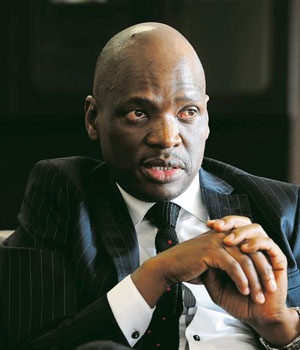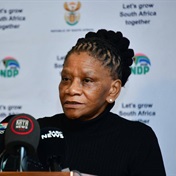
Public broadcaster on the defence as its decision to veto violent protests on TV is called into legal question amid fears of encouraging further censorship
The SABC has until tomorrow to provide the Independent Communications Authority of SA (Icasa) with reasons it was correct to ban footage of violent protests from television screens.
Icasa’s complaints and compliance committee made this ruling on Wednesday, saying the matter was urgent, after lobby group Media Monitoring Africa complained to the statutory institution that the SABC’s decision was in conflict with the public broadcaster’s duties as outlined in the Broadcasting Act, and the Constitution.
Media Monitoring Africa’s William Bird said they were challenging the ban because it constituted censorship.
Bird said no one knew why the SABC had taken the decision, or what wrong they sought to address – adding that it was unclear what the actual decision was.
“It should at least be written down, but we are left to rely on a press release. The absence of clarity is likely to not only lead to confusion, but will directly encourage self-censorship and a chilling effect,” said Bird.
He said the ban meant viewers needed to be cautious of the news emanating from the SABC.
“Primarily, though, it means they are likely to get a more sanitised version of the news, preventing the audience from making up their own mind about the events and being more clearly directed.”
The SABC had argued to Icasa that the matter was not urgent. Yesterday, SABC spokesperson Kaizer Kganyago said the broadcaster would not disclose to the media the argument it would put to Icasa over the matter.
But he repeatedly told City Press that it was not true that the SABC “banned anything”, nor was it censoring news.
Kganyago said those who complained about the decision not to air footage of the destruction of property were misinterpreting the SABC’s statement.
“People keep saying that we are banning something, they say we say we are not going to cover violent protest. That is not what we are saying. We are saying the opposite. We are saying we will continue to cover protests.
The only thing we are not going to show is the footage of people burning or destroying property. But we will give people the information. But we are saying: ‘If you are doing this thing that we do not agree with, this part [destroying property], we are not going to give you the luxury of thinking you can show off that.’”
He argued that people were selective in what they read, referring to Icasa’s regulations in a section guiding broadcasters on how to deal with children. “We should not give children an impression that violence is the only way of solving a problem.”
In his ruling on urgency, Jacobus van Rooyen – who chairs the complaints and compliance committee – said the SABC, in effect, argues that “the people who destroy public property, thereby going beyond their right to protest, do not have a right to coverage by the SABC”.
Van Rooyen said the main issue was for Icasa to provide clarity to the public and the SABC.
“It is urgent that this uncertainty be removed and a decision be reached on whether the SABC’s decision is justifiable in law or not. Every day counts and that makes the matter urgent – that is so, whether an election is imminent or not.”
Besides the ban of protest visuals, the SABC also dropped The Editors radio programme without notice.
The public broadcaster had also banned the reading of newspaper headlines or discussing newspapers’ front pages on air, rationalising the decision as giving free publicity to print media.
These developments come amid Parliament’s failure to fill six vacancies on the 12-member SABC board for over two years.
Parliament’s portfolio committee on communications has advertised and short-listed for the vacancies a number of times, but they remain unfilled.
ANC MP Dikeledi Tsotetsi, the party’s whip in the portfolio committee on communications, said the process to fill the vacancies was delayed by the verification of the candidates’ credentials.
She confirmed that the committee had short-listed names for three board vacancies, but wanted to interview candidates who had gone through vetting and were deemed “clean”.
DA MP Phumzile van Damme, who sits on the communications committee, said there was a concerted effort by ANC members on the committee not to fill the vacancies.
She said despite candidates being short-listed in February, meetings scheduled for interviews were either postponed or cancelled without reason. “It would appear that the ANC members have been instructed to await the passing of the Broadcasting Amendment Bill, which will do away with Parliament’s role in nominating and interviewing candidates for the SABC board.”
Talk to us
Do you agree with the SABC that not broadcasting violent protest scenes will reduce violent protests?
SMS us on 35697 using the keyword PROTEST. Include your name and province. SMSes cost R1.50




 Publications
Publications
 Partners
Partners








